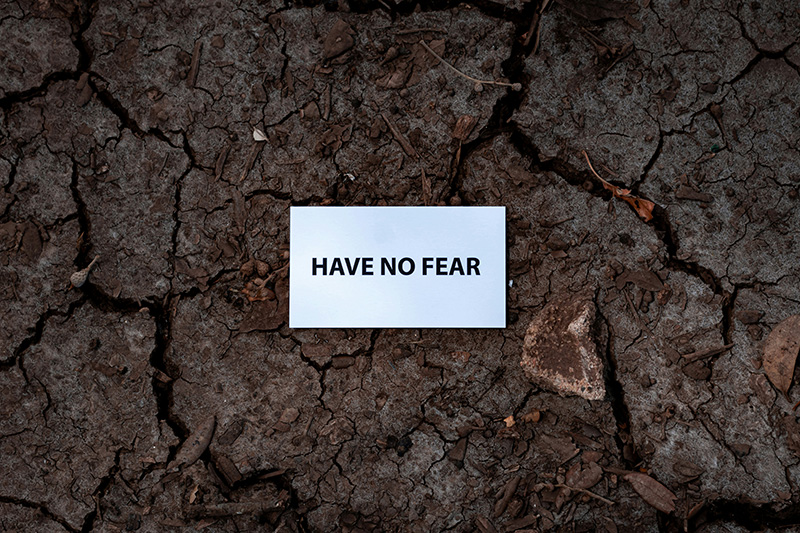Last Updated on April 10, 2023
These Write Angles pieces are supposed to offer advice about writing. It was my turn to contribute a piece and I debated the subject. Should I write about how to write memorable characters or good dialogue? Give advice on writing a memoir, or discuss what makes a compelling story? After getting up from my desk several times and pacing my office, I was unable to decide. It's not that I wasn't able to decide, I wouldn't decide. Nothing felt right. Why? Because having sat at my desk since five-thirty in the morning I was censoring my every thought and word, until my mind was as blank as my computer‘s screen.
After more starts and stops than a New York subway, I had nothing but a cursor flashing my ineptitude like a neon sign. So what did I do? What a lot of writers do when faced with a blank screen: I went for a walk. With my black Lab in tow I embarked on an early morning jaunt, and a few blocks later I let go of the tension and negative vibes and let in some fresh air and birdsong. For me, walking is therapeutic and triggers a meditative state, setting up the perfect conditions for solving problems. After a mile, the endorphins started percolating. When I got back to my office I had my ritual coffee and returned to the blank screen. But this time when I began typing I knew what my topic was. It had become obvious to me while on my walk: how to get unstuck when writing.
I'm not talking about serious writer's block, the kind that prevents a person from writing for months or, sadly, for years. I'm talking about what to do when you're stuck on the page and can't figure out what to do next, when you're feeling overwhelmed about story or character or dialogue and feel as if you cannot write another sentence, never mind another scene.
I've found that this is usually the time to shake things up. Do things differently. I imagine you've all heard of muscle confusion, where workouts are constantly, but systematically, changing so that instead of your body reaching a plateau from doing the same routine every day, the muscles are challenged and forced to adapt. Theoretically, as a result, more calories are burned and stronger muscles are built.
We get a similar mental benefit when taking on new activities and skills, as in learning a different language or a new dance or sport. (Just watch those neurons fire up as we force ourselves into new patterns.) When we challenge ourselves to look at things differently, we adapt. Certainly doing the habitual can lead us into a rut. Recently I moved my refrigerator to a new place in the kitchen to accommodate a brand- new stackable washer and dryer. I can't tell you how many times I reached for the dryer when wanting ice. I had to rethink my routine, and it made me realize what a creature of habit I'd become.
So whenever my writing clients get stuck on the page, I suggest they do things differently and offer some tips and exercises for how to get unstuck and back on the page. More often than not, they call me later to say my suggestions helped. I may not have given them the exact words to write, but the exercises freed them from looking at their work the same way, and offered them options, moving them to think in a different direction--which leads me to the first item on my Getting Unstuck list:
- When you're stuck, move. Go for a walk, a run, a hike, a bike ride; do twenty push-ups or jumping jacks or squats; do some yoga stretches; crank up the music and dance. Getting physical helps release endorphins, and makes us feel revitalized and renewed. If nothing else, we'll be in better shape to endure the long hours in front of the computer screen.
- Read something by your favorite author. Poetry works best for me. After you've read a page or so, start writing whatever comes to mind; don't stop, don't edit, don't censor. What you write doesn't have to be about the piece you're working on. Give yourself permission to write what your inner critic might deem boring or dull or just plain junk. What counts is you're writing. If you're still stuck, try using a line or a phrase from a poem or a short story as a prompt. Sometimes this can get us moving in an unexpected direction.
- Listen to a piece of music. Classical works best for me, sometimes rap. Whether it's Mozart or Tupac I can close my eyes and see my characters moving in a scene to the rhythms of the song; maybe they're dancing, maybe not, but they are behaving differently. Music is emotional; it moves us, and reaches into our soul. Find the music that speaks to you and let it inspire you. Get into the sound and rhythm of the piece you're working on, then start writing and don't stop. Allow yourself to write in a stream of consciousness. See what happens.
- Grab an art book and look at your favorite paintings or photographs. Some artists speak to me in ways that inspire me to write. A particular photograph that intrigued me included the spatial beauty of a door (an insignificant part of the photo, really, but it got me thinking: what was behind it, who lived there, what was their life like, were they happy? A story began to unfold.). Think of the scene you're working on now as a movie or a still shot; imagine it visually, and allow yourself to view the scene differently. Start writing and stay with the scene. Think about Don DeLillo's insight: “Writing is a concentrated form of thinking.”
- Eavesdrop. I can't tell you how many interesting lines of dialogue I have found eavesdropping as I waited in line for coffee or gas or to pay for my groceries. When you're out, make a conscious effort to listen to the conversations around you, and I'm certain you'll hear some interesting lines. Jot some down and give a line or two to a character. It may not work for the scene, but allow yourself the freedom to experiment.
- If you're writing fiction, lock two characters in an unusual setting, then assign a task and see what happens. Play it out on the page--and again, don't stop or censor; see where the scene takes you. You may discover something new about your characters. Perhaps they are not behaving as you thought they would; you might find them behaving contrary to your preconceived ideas, which is a good thing.
- Exchange one character's dialogue for another. A wise acting teacher of mine told us when we got stuck in a scene, or were playing the cliché, to experiment by switching roles (it didn't matter if that meant switching gender). I tried doing a scene playing the male's role, and my scene partner, a man, played mine. It was amazing; when I was doing the scene from the male's point of view I gained new insight into my character--her motives, desires and doubts. I found the same thing works when I get stuck writing a scene. As an experiment, I mix it up and exchange the characters' dialogue. Sometimes I find a line works better coming from the other character's mouth; sometimes it makes me reinvent the scene.
- Most of all, remember to take to heart what Annie Dillard said in A Writer's Life:
Who will teach me to write? a reader wanted to know.
The page, the page, the eternal blankness, the blankness of eternity which you cover slowly, affirming time's scrawl as a right and your daring as necessity; the page, which you cover woodenly, ruining it, but asserting your freedom and power to act, acknowledging that you ruin everything you touch but touching it nevertheless, because acting is better than being here in mere opacity; the page, which you cover slowly with the crabbed thread of your gut; the page in the purity of its possibilities; the page of your death, against which you pit such flawed excellences as you can muster with all your life's strength: that page which will teach you to write.
WANT TO REPRINT THIS ARTICLE ON YOUR SITE OR IN YOUR E-ZINE? You may, but only if you also include a byline and the following: Copyright 2013 by Barbara DeSantis. All rights reserved. laeditorsandwritersgroup.com/about-our-members/barbara-desantis/
- Should I Fictionalize My Memoir? - June 21, 2024
- Do I Need a Writing Coach? - July 13, 2023
- How to Improve and Inspire Your Writing: 7 Books That Will Pave the Way - April 25, 2022



